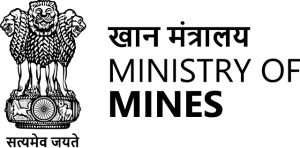- Direct public investment equivalent to 2% of GDP can potentially generate 11 million jobs, nearly 70% of which will go to women
- Unpaid work crucial for economies yet remains invisible and unaccounted for in GDP estimates.
New Delhi : Leading women’s industry body FICCI FLO has called for comprehensive reforms to boost India’s care economy that could generate over 11 million jobs, 70 per cent of which will go to women, and unlock a new economic segment.
In a comprehensive report released here, FICCI said unpaid work is crucial for households and economies to function yet remains mostly invisible and unaccounted for in estimates of gross domestic product (GDP) and economic growth.
“The undervaluation and invisibility of care work, predominantly performed by women, has resulted in a market failure, where skilled and talented women are unable to realise their economic potential, leading to a misallocation of resources at the macroeconomic level,” said Sudha Shivkumar, President FICCI FLO.
The report was released on the occasion of the completion of four decades of FICCI FLO.
In the report, the women’s apex industry body said that enhancing investments in the care economy has the potential to not only bridge gender gaps in women’s labour force participation, but also unlock a new economic segment.
“Evidence from the International Labour Organisation suggests that increasing investments in the care services sector have the potential to generate 475 million jobs globally by 2030. For India specifically, direct public investment equivalent to 2% of GDP can potentially generate 11 million jobs, nearly 70% of which will go to women,” the report said.
Federation of Indian Chambers of Commerce & Industry Ladies Organization, in partnership with Nikore Associates (a youth-led think tank), had earlier held four roundtables on the care economy in Delhi, Kolkata, Bengaluru and Mumbai.
FICCI FLO called for reimagining India’s care economy and emphasised on both public and private investment.
The roadmap includes five key areas: leave policies, care service subsidies, investment in care infrastructure, skill training for care workers, and quality assurance mechanisms.
Pillar 1: Leave Policy: Studies indicate that offering paid parental leave benefits children’s development, maternal health, and economic security. Most G20 nations provide paid maternity leave. Paternity leave ranges from 2-30 days in G20 countries, and there’s a trend toward gender-neutral parental leave in Europe.
In India, the MoLE can consider supporting MSMEs and startups financially for maternity leave, revising parental leave policies, and promoting care work leave and flexible work options. This could include introducing market-based financing for leave, such as parental leave insurance. Employers are encouraged to adopt gender-neutral care work leave and flexible work options. Collaboration between government agencies and industry bodies can promote these initiatives, especially among smaller businesses.
Pillar 2: Subsidies for Care Givers: Globally, subsidies for care services often come in the form of tax credits for parents and concessions for businesses providing childcare benefits.
In India, care service subsidies and incentives are typically offered through government schemes like Mission Shakti, focusing on women’s safety, security, and empowerment. Enhancements to these schemes could involve wider financial support for childcare, elderly care, and long-term care services, particularly in rural and underserved areas. This could include incentives for women-led Self-Help Groups (SHGs) and NGOs providing such services, possibly through tax rebates for women-led MSMEs and cooperatives.
Pillar 3: Investment in Care Infrastructure: Globally, G20 countries invested between 1% to 4.1% of GDP in care infrastructure in 2018. In India, major government schemes like Saksham Anganwadi, POSHAN 2.0, Mission Shakti’s Samarthya, Atal Vayo Abhyuday Yojana, and the National Social Assistance Program aim to provide care infrastructure and services. However, the total budget allocation for these schemes in 2023-24 was only about 0.73% of the total budget expenditure.
To address this, it’s recommended to enhance public and private sector investments, particularly through centrally sponsored schemes. Suggestions include increasing public funding for childcare centers under the Palna scheme, introducing a new scheme for multipurpose care facilities, and mobilizing private sector investment through Public-Private Partnerships (PPPs).
Pillar 4: Skill training for care workers: India’s care sector relies heavily on a diverse workforce including Anganwadi Workers (AWWs), Auxiliary Nurse-Midwives (ANMs), Accredited Social Health Activists (ASHAs), and domestic workers, with estimates ranging from 4.2 million to potentially over 50 million. Despite their crucial role, these workers often face informality and low wages, particularly among women. The Ministry of Skill Development and Entrepreneurship (MSDE) and National Skill Development Council (NSDC) can conduct a thorough study to identify skill gaps and develop relevant training modules. Leveraging existing frameworks like PMKVY 4.0 guidelines, along with government-to-government and business-to-business agreements, can integrate global best practices into India’s care sector training programs. •
Pillar 5: Institutional mechanisms for quality assurance: Care service provision, whether in public or private facilities, demands institutional oversight to ensure infrastructure maintenance and satisfactory service quality. This entails establishing minimum service levels and infrastructure benchmarks, adaptable at national, state, and district levels.
About FICCI FLO: Established in 1983 as a division of the Federation of Indian Chambers of Commerce and Industry (FICCI), FICCI FLO stands as a dynamic force in promoting entrepreneurship and professional excellence among women. With 19 Chapters spanning across India and headquartered in New Delhi, FLO is committed to fostering a conducive environment for women to thrive. Through a plethora of workshops, seminars, conferences, training, and capacity-building programs, FLO aims to empower women to showcase their talents, skills, experiences, and energies across various sectors, contributing to a truly inclusive economic growth trajectory.




